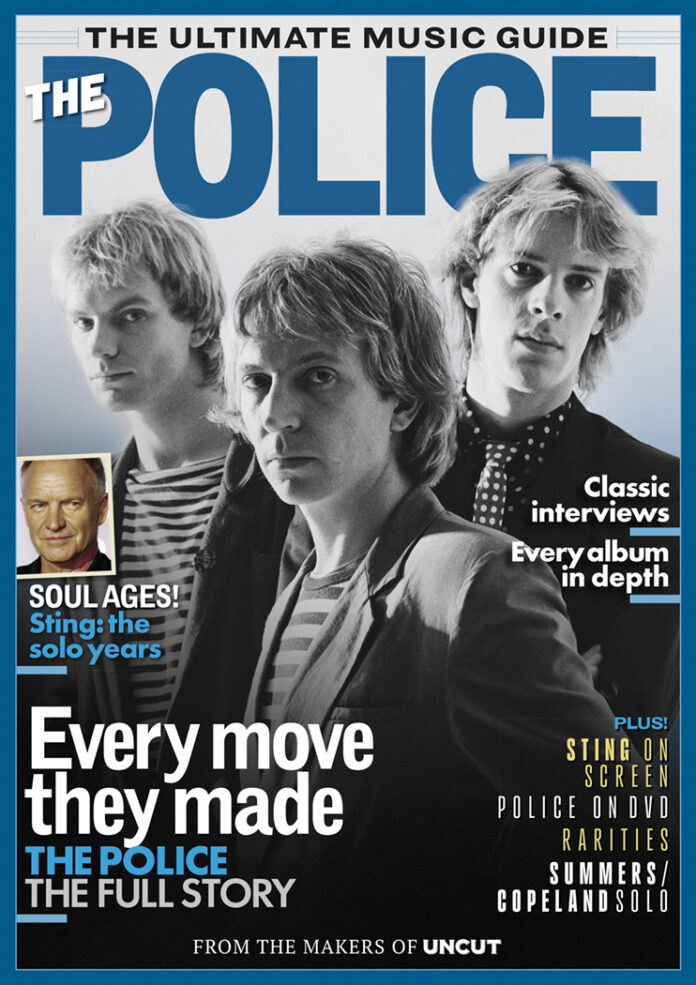We already know their ubiquitous singles, and their world-beating albums. As you’ll discover in this new magazine, in addition to their artistic achievements, The Police must also have been the world’s most self-aware band.
As they freely confess in the classic interviews we’ve picked from the archive for you here, this wasn’t a band to keep their cards close to their chest or their motivations to themselves. Forming to take advantage of punk. Ditching their original guitarist when he couldn’t keep up. Frankly discussing the economics of the trio format.
For all their unanimity of image – three good-looking blonde lads, a strong Breton shirt/suit jacket game – very quickly, their distinct characters emerge in print. Stewart Copeland, a garrulous American whose glib and cynical wit is clearly a gift to anyone holding a tape recorder. Andy Summers, a laconic older statesman whose wisdom encourages him to keep his own counsel, wryly teasing those he meets. And then there’s Sting, who has simply never encountered a moment’s self-doubt about his ability to do anything.
Interestingly, this miraculously doesn’t make him obnoxious. Instead, Sting maintains a refreshing candour. Yes, he is ambitious. Yes, he wants to make the most of his opportunities. Yes, he wants to make a great deal of money. No, his working class roots do not make him feel uncomfortable in a big house in Hampstead.
The music which has brought him there is among the most commercially successful of its era, and on the following pages we have reviewed each of the albums in depth to follow its development. They would make bigger albums with more instantly-recognisable hit singles, but it’s hard to argue that it ever got better than the second album Reggatta de Blanc. The title punned on their white reggae mode, but on the record they extended far beyond that joky remit – the guitar playing of Andy Summers taking songs like “Bring On The Night” off in an unexpected and even vaguely psychedelic direction.
When Melody Maker’s Allan Jones meets the band at about this point in 1979, he finds Sting characteristically self-possessed, a new kind of rock star ready for a new level of success that his music will bring.
“I don’t take drugs. I don’t even smoke dope,” he tells Allan. “I don’t mean to sound boring but I don’t have any habits that vast amounts of money will exaggerate.
“I know I’m arrogant,” he continues. “But it’s largely a professional arrogance. It’s a useful tool for me. If I wasn’t arrogant, I wouldn’t be as successful as I am.”
Enjoy the magazine. You can get a copy from us here.



